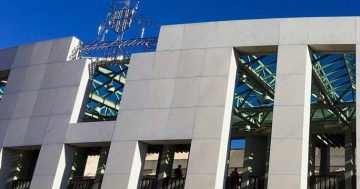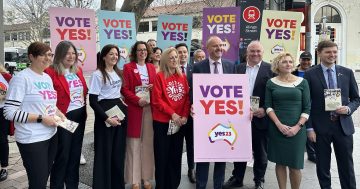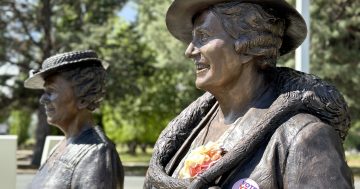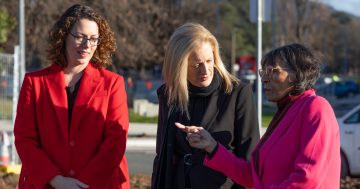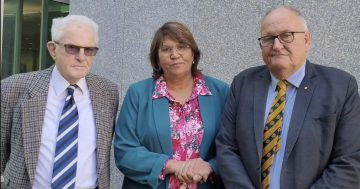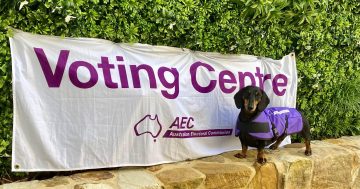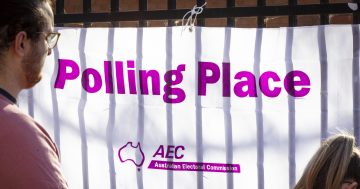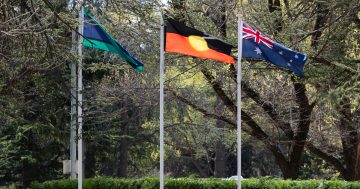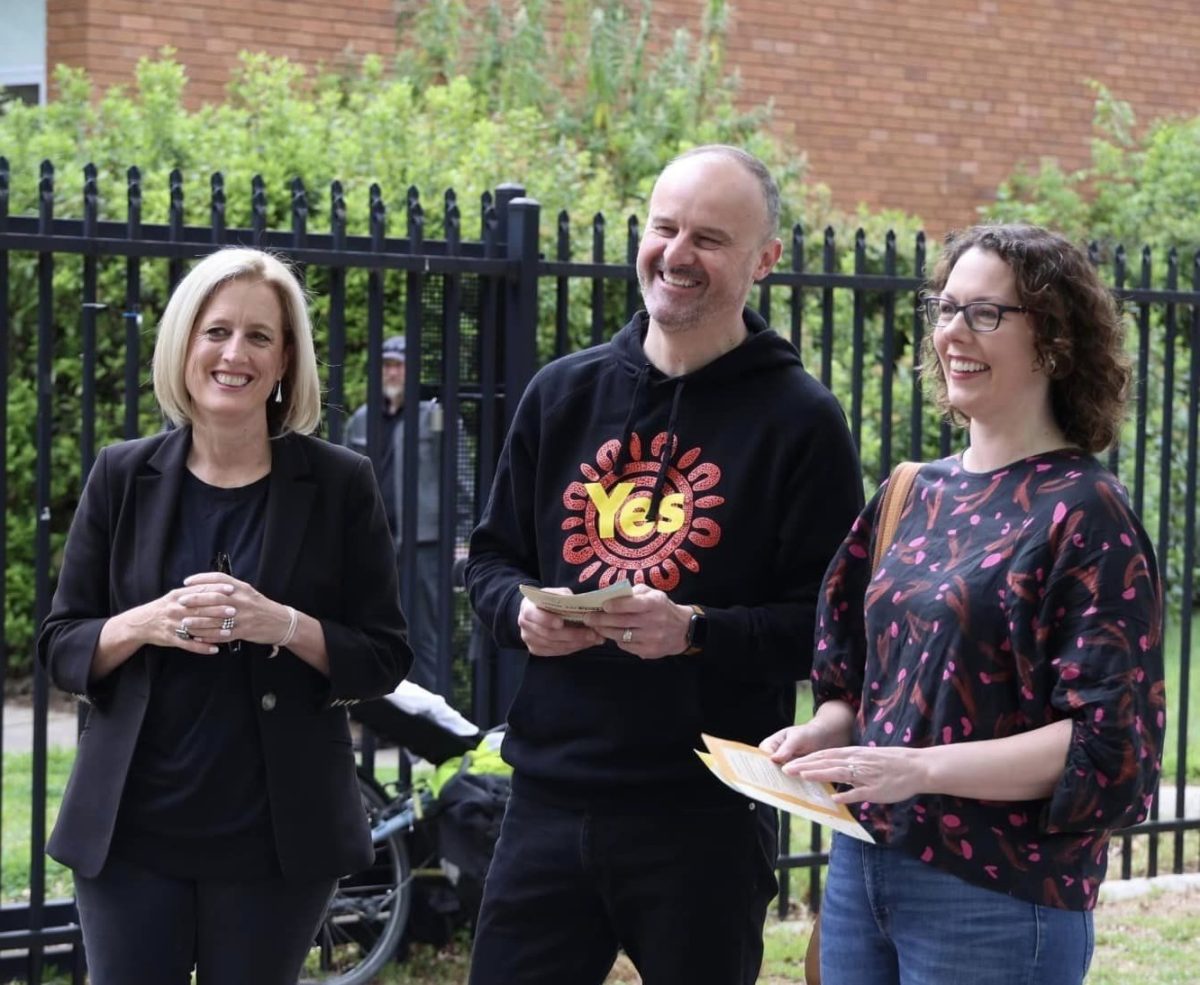
Chief Minister Andrew Barr (centre) and Federal ACT MPs Katy Gallagher and Alicia Payne backing the Voice. Photo: Facebook.
“Where do we go as government and as a community to responding to the substantive issues that the referendum raised?”
This is the question ACT Chief Minister Andrew Barr is focusing on as the Indigenous Voice to Parliament referendum returned a No result.
Counting is still underway and the result is yet to be officially announced by the Australian Electoral Commission; however, enough votes have been counted to show only the ACT returned a Yes vote for the proposed change to the Constitution.
Mr Barr said while there was sadness the referendum had failed, the “silver lining” was how strongly Canberrans had been willing to embrace change.
“A lot of the campaign involved rhetoric of ‘if you don’t know, vote No’, [so] I think we’d characterise that Canberrans’ response was, if they didn’t know they took the time to find out,” he said.
“It didn’t necessarily mean they voted Yes, but I think this community is generally more engaged on political matters. We have a long history of that.”
He admitted there were problems with the Yes campaign, such as not seizing on “pivotal moments” to make arguments clearer earlier.
Campaigning in a social media environment also made communication on a national level more difficult.
“The environment is ripe for misinformation,” Mr Barr said.
“Selling a No message is easy, blocking change is easy, actually achieving things in politics … that’s the hard bit.”
But he said looking at what went wrong won’t fix the problems still faced by First Nations peoples and the rest of Australia.
“Picking over the entrails of this campaign doesn’t serve a huge purpose. I think the question now is where do we go as government and as a community to responding to the substantive issues that the referendum raised?” Mr Barr said.
“I don’t think this was a vote against Aboriginal and Torres Strait Islander people, I don’t think this was a vote against Reconciliation, and I don’t think this was a vote against closing the gap. It was a vote about constitutional recognition and a national Voice.
“The Australian people have spoken on those two questions but it is very clear to me … that [No voters] were interested in engaging in more practical ways to close the gap.”
Mr Barr said wheels were already in motion to continue working on closing the gap both in the Territory and nationally, with announcements expected on education and training later this week.
He identified the delivery of government services, housing, mental health and employment as other areas that needed continued attention at both levels.
“I don’t think we’re going to solve all of the issues this week, this month, this year. But we should continue to listen and engage, and that’s what we will be doing in the ACT,” Mr Barr said.
The referendum result comes as a casual vacancy has opened on the ACT Aboriginal and Torres Strait Islander Electoral Body.
ACT Electoral Commissioner Damian Cantwell said he was notified last week that member Jacob Keed had resigned from his position on the body.
“[I] call for applications from the unsuccessful candidates at the 2021 Elected Body election who still live in the ACT and who wish to contest the vacancy,” he said.
Applications close at midday on Wednesday (October 18), with a declaration of the candidates wishing to contest the vacancy to be made at 12:30 pm on the same day.
Mr Barr encouraged those people to get back in touch and put their names forward.
“I think one thread through this campaign was an unrealistic expectation that every Aboriginal and Torres Strait Islander Australian was going to be of the same view on a particular issue,” he said.
“I think an important element of our elected body is it exists as a forum to engage with government – it’s not going to solve every single issue, but it certainly doesn’t hurt, and it’s better than the alternative of no elected representative body.”













